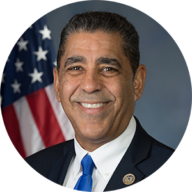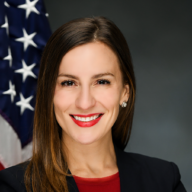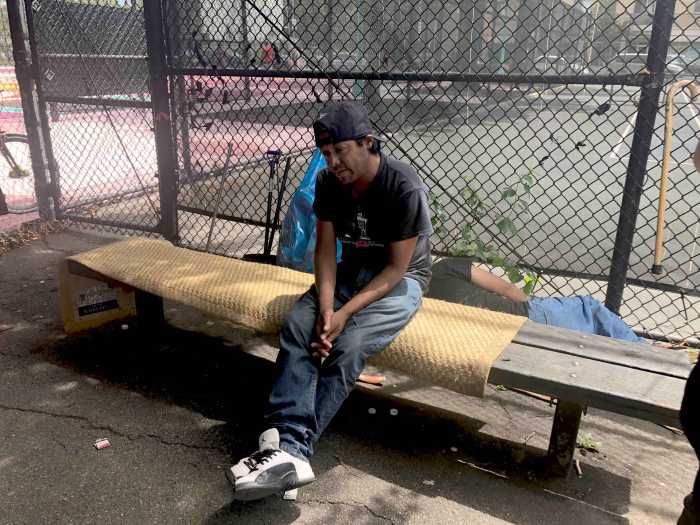Espaillat Calls for Redesignation of TPS for Honduras, Nicaragua, Venezuela, Haiti and El Salvador

U.S. Rep. Adriano Espaillat (D-Manhattan, Bronx), Second Vice Chair of the Congressional Hispanic Caucus (CHC), led Members of the CHC in a letter to Ambassador Susan Rice, Director of the Domestic Policy Council of the United States, following up on their call for the Administration to redesignate Temporary Protected Status (TPS) for Honduras, Nicaragua, Venezuela, Haiti and El Salvador and TPS designation for Guatemala.
This letter comes after the members’ April 25 meeting with President Biden and senior administration officials at the White House, where they discussed topics of critical importance to the Hispanic community and the CHC.—including a slate of executive actions on immigration, education, environmental justice, and healthcare.
“As mentioned during our meeting, redesignating and designating TPS for the aforementioned countries would extend protections for immigrants who have already been in the United States for many years and are unable to return to their countries due to natural disasters, conflict, and humanitarian crises,” the members said in their letter. “We are deeply concerned that many living in the United States today remain ineligible for deportation protections, and, at a moment’s notice, can be put at risk of being re-exposed to unsafe and deadly conditions in their home countries.”
The members also highlight that these additional TPS designations would help address U.S. labor shortages, protect the integrity of American families, and mitigate risks of further instability in Central America.
Biaggi, Steck Push Legislation to Separate Resigned Pols from Campaign Money


State Sen. Alessandra Biaggi (D-Bronx, Westchester) and Assemblymember Phil Steck (D-Schenectady) this week called on state lawmakers to pass legislation that would no longer allow an elected official who resigned after findings of criminal conduct, was impeached or convicted of a crime while in office to use campaign funds for certain activities.
Over the past decade, numerous elected officials have left public office as outlined by the bill and continued to spend down on their campaign funds, including Carl Kruger and Andrew Cuomo.
Currently, disgraced elected officials can spend their leftover campaign cash on anything under campaign finance law, even if they are no longer running for public office. Steck and Biaggi’s bill would close a gap in New York state’s laws, prohibiting the resigned official from spending money from an existing campaign for any political purpose and require them to close the account within two years.
“New Yorkers donate to candidates with the expectation that they will act with integrity and uphold the public trust should they assume office. When elected officials violate that trust, they should not be able to influence our politics with funds previously raised. I am proud to sponsor this bill with Assembly Member Steck to prohibit individuals who corrupt their offices from spending funds raised while in office. This is a common-sense step to uphold integrity and ethics in our state,” said Biaggi.
“Campaign funds have long been used by former elected officials who have left public service to attend events, give to charitable organizations, and support other candidates and political committees. However, in recent years, high profile former elected officials with robust campaign accounts have utilized those accounts for everything other than a campaign. This misuse of these funds needs to end. This legislation removes access to these campaign accounts by former officials who have been convicted, convicted and resigned, or convicted and impeached, as well as those who resigned after the attorney general or a committee of the legislature has found the official violated the law,” said Steck.
Myrie Lauds Bill Protecting Children from Junk Food Companies Targeting Them

State Sen. Zellnor Y. Myrie (D-Brooklyn) this week lauded the Senate Agriculture Committee on voting to advance S.7487-B, the Predatory Marketing Prevention Act (PMPA), which aims to protect children from junk food companies targeting them with false or misleading advertisements
“Young people in communities like mine are up against billions of dollars in sophisticated market research by companies looking to get customers hooked for life on unhealthy food and drink. The result is a growing disparity in health outcomes and higher rates of heart disease, obesity, diabetes and other ailments that especially affect children and families of color,” said Myrie.
“The PMPA gives our communities a fighting chance against global corporations, and would prohibit the type of deceptive and predatory marketing that is all too common in our neighborhoods. I’m grateful to my colleague Senator Michelle Hinchey for helping to advance this bill through the Senate Agriculture Committee today, and look forward to its passage by the full Senate and Assembly.”
AM Rosenthal Announces Safer Consumption Services Act Bill Moves for First Time

Assemblymember Linda B. Rosenthal (D-Manhattan) this week announced that her legislation, bill A.224, the Safer Consumption Services Act (SCSA), was reported out of the Health Committee and now heads to the Codes Committee.
SCS are vital harm reduction tools that help prevent fatal overdoses. The first SCS opened in 1986 in Berne, Switzerland and they have been in continuous operation since. No one has ever died in a SCS.
“Every year when New York’s overdose numbers are released, we are stunned that they are worse than the last. Despite our alarm, we continue to debate SCS, which is even more absurd now that SCS have saved more than 150 lives in New York City in less than a year,” said Rosenthal. “We didn’t have the luxury of time when I first introduced the bill back in 2015, and we do not now. This year alone, New York State lost nearly 3,00 people in the first six months of 2021 to preventable overdose, yet New York is leaving a critical tool unused in the toolbox.”
SCS, which operate in 66 cities in dozens of countries across the world, are proven to help reduce overdose deaths and to connect people with addiction treatment and other supportive services. SCS are staffed with professionals who are trained to identify an overdose and quickly administer naloxone, a drug capable of reversing an overdose if given quickly and correctly.
In one of the final acts of the previous Administration, in November 2021 the City of New York gave the green light to two SCS sites operated by OnPoint NYC in East Harlem and Washington Heights. In their first three months in operation the two sites have prevented more than 150 overdoses and provided services to more than 800 people during about 9,500 visits.










